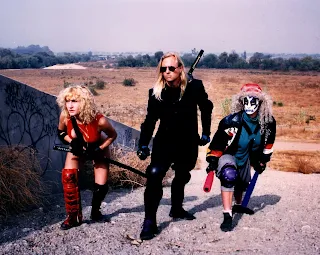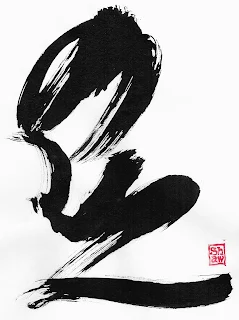By Scott Shaw
When I first got into the film game, at the ripe old age of thirty-two, I never thought too much about becoming an auteur. Yeah, I was an artist on canvas. So, I certainly understood what art was. Or, at least, what it was supposed to be. Yeah, I was a poet and a novelist, so I understood the construction of words in an art-filled way to tell a story. Yeah, I was a musician, so I understood how you had to play nice with other musical artists if you wanted to be in a band. But, for me, in the early days, I was just doing what I did.
I came into the game at a transitional time in filmmaking. Though film still reigned supreme. And, if you wanted to be considered a, “Real,” filmmaker you could only shoot on film. But, video was starting to make its inroads. With video, though still not cheap to make a movie, it was far cheaper than shooting on film. Thus, the flood gates opened. And, I believe I played a small part in that process.
But, whether it was shot on film or on video, a movie still had to be, “Made.” Someone, “The Filmmaker,” had to get out of bed and make it happen. They had to go through all of the stuff filmmakers have to go through if they hope to get it done. And, this is never easy. It takes a lot of focus and a lot of work.
For some reason, I was either blessed or cursed to have met and worked with Donald G. Jackson early in my emersion into the film game. Though crazed and mentally unstable by most standards, it cannot be denied he was a true artist; a film artist. The combination of him and I, though coming from very different states of minds and seeking very different life outcomes, we did find a balance which ultimately came to focus the direction of my filmmaking and lead to the creation of Zen Filmmaking.
Certainly, the first Zen Film, The Roller Blade Seven came to be a calling card for both of us and especially for me as an emerging filmmaker. It was/is a crazy film. Then, like now, few people get it. But, that’s okay. As far as I can tell, with all of the proceeding movies I have made, it is a work of art; true film art.
When I started out on that film did I plan for it to become what it became? Nope. I thought we would do an action-adventure piece. But, I’ve spoken about all of that elsewhere.
A few years after the creation of RB7, I am told that the film, and the foundational technique and philosophy used to create the film, became the discussion of a few classes on filmmaking, taught at respected university film schools. Nobody ever asked me (or Don) to come and speak about its creation, however. So, I can’t really tell you what was said. But, combine that with the next segment of Zen Films that I created and Zen Filmmaking began to become an expanded topic for discussion. That was all fine with me.
With the birth of the internet, I used to receive questions all the time about how I did what I did. I also witnessed how some people were actually attempting to make their own Zen Films or redesign my techniques somewhat; shape and adapt them to their own methods. There were even a few people out there proclaiming the technique and did their own “Zen Films.” Great! “Make it your own,” I would always say. I was even told about a few colleges where the instructor was actually leading a Zen Filmmaking class, having their students create Zen Films. Excellent!
Somewhere along the way, however, it seemed the focus of attention begin to shift. I kind of saw this with the advent of, “Influencer,” or, “Content Creator,” culture. Some people begin to reach out and use the films that other people had created as a sounding board for their own voice, telling their audience what they thought about what. With this, there seemed to arise a focus on the negative. Why? I believe it is because there are a lot of people out there who feel no real sense of self-purpose, so it is far easier to take the drug of hate than positivity, as it provides much more of a rush. With this, I witnessed the films I created shift and become targets instead of studied works of art.
I must intercede here and state, this is not and has not always been the case. I continue to receive a lot of well thought out questions and comments. But, as the focus has been taken off of me, (and Donald G. Jackson who passed away twenty years ago), the voice for Zen Filmmaking, and what it truly represents, has seemingly been taken over by the Content Creators who spout off incorrect facts, focusing on specific segments of the Zen Films simply has a means to draw fault, and create a negative-based appraisal based upon their own specific state of mind. Though they, more often than not, are wrong in their assumptions, many listeners simply choose to believe what they hear with no further research. Thus, they completely overlook the art of the Zen Films.
What I am saying here is, the focus on what Zen Filmmaking truly is has shifted from the realms of academia or true artistic questioning and has become lost to the minds of those who care more about making a name for themselves than in presenting the truth about Zen Filmmaking and the films of Donald G. Jackson and Scott Shaw.
I have spoken and written a lot about Zen Filmmaking over the years. It’s all out there if you wish to seek it out. But, the point that everyone seems to miss is that Zen Filmmaking is a spiritual process. It is about consciously embrace the Zen, permitting the moment to be the only guide, allowing the magic, that can never be planned for, to occur, and accepting the film art that is created for what it is, not what your mind hoped it would be. All of that seems to be lost in the recent discourses. All that seems to be portrayed is attack ads, voiced by someone who wishes to grow their following, not someone with a true vision for the arts and/or analyzing the purity of the process.
So, how does this affect you? What this tells us is that, for those of us who are artists, (whatever that art form may be), or for those of us who love and embrace the arts, we must step beyond the false reality disseminated by those who are not themselves artist or those who do not or cannot truly understand the art in all things creative. We must not allow our minds to be shaped by those with a negative, condescending, or hurtful mindset on any level. If we love art, by whatever name or form, we must understand that art is the creation of the artist. If, like me, that artists has a defined process, we must view that art based upon the understanding of that process. Mostly, as an artist or an art lover, we must embrace the fact that judgment is never the cornerstone of any discussion on or about art, as art can ultimate not be judged. If it is art, if art was the intention in its creation, it must be observed by those standards and simply be allowed to be what it truly is, art.
Never allow the voice of those who base their life appraisal or their life work on negativity and criticism be your guide. Embrace the creative purity of art, by whatever form it takes.
Art is the ultimate art form. Let it be what it is.
Copyright © 2033—All Rights Reserved
Originally from the Scott Shaw Blog @ Scott Shaw.com






















